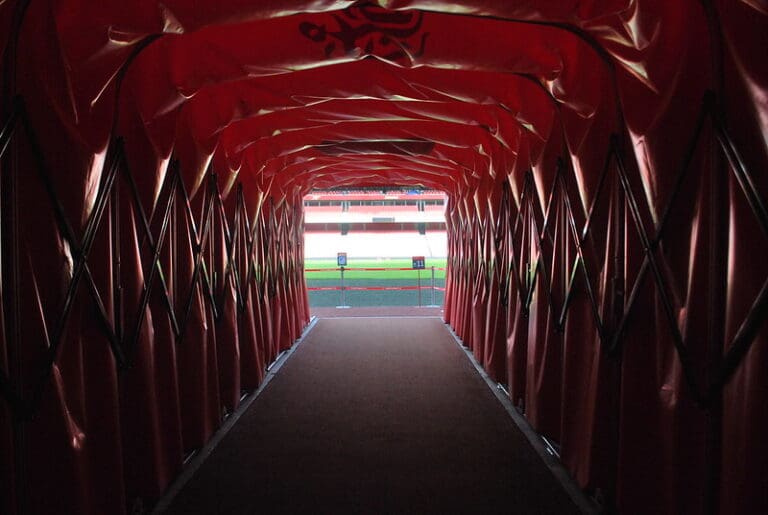The frantic furore over the European Super League killed off the proposal before it had a chance to get off the ground. But this is likely little more than a pause while the football community regroups and puts together a better PR strategy. Some form of consolidation around elite teams is inevitable.
Professional football clubs in Europe are an unusual sort of beast from the perspective of economic theory. Companies act to maximise profit. But that concept is not defined neatly: a pricing policy which exploits customers and increases profits in the short term may still prove disastrous.
But clubs have not traditionally even tried to maximise profits, the primary motivation seems to have been the opposite – maximising costs.
Spending more money means getting better players. The correlation between how much a team spends on its players and its league position is not perfect, but it is very high. It is the principal reason for success.
The new generation of American owners of England’s top clubs bring with them a completely different attitude, one which is completely normal in corporate life.
Success continues to be vital, as in any sphere of business activity. But a key purpose in America is for the club to treat it like any business and generate a profit.
This profound cultural difference does not mean football fans embrace socialism. Fans have few qualms about the stupendous amounts of money handed out to the top players. For example, Marcus Rashford of Manchester United has a contract reportedly of £10 million a year.
American economist Sherwin Rosen, writing before the rise of the internet, explained the curious economic phenomenon behind activities such as watching a sport or going to a film. They all involve what economists call “joint consumption”.
If I am watching United on the television, it does not matter how many other people are viewing at the same time. The game is still available for me to watch. In contrast, if I book a table at a popular restaurant or a particular seat on a flight, no-one else can use it.
Rosen argued that advances in communications technology such as radio and television increased enormously the potential size of markets involving joint consumption.
Being physically present at a live performance, whether opera or sport, is a different experience from watching it live on TV or streamed. True fans value the former, but the producers make money from the latter. It is the physical fans who cut up rough, but ultimately the global audience is far more important.
These fundamental points in economic theory mean that the pressure to form organisations such as the Super League will grow rather than decline.
Poor King Canute is wrongly believed to have tried to order the tide to stop coming in. Attempts to suppress some form of elite soccer competition emerging will eventually prove just as futile.


